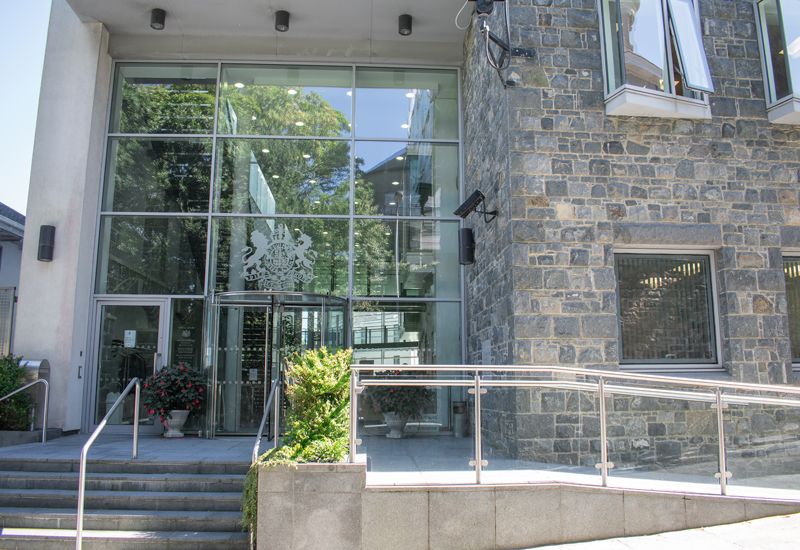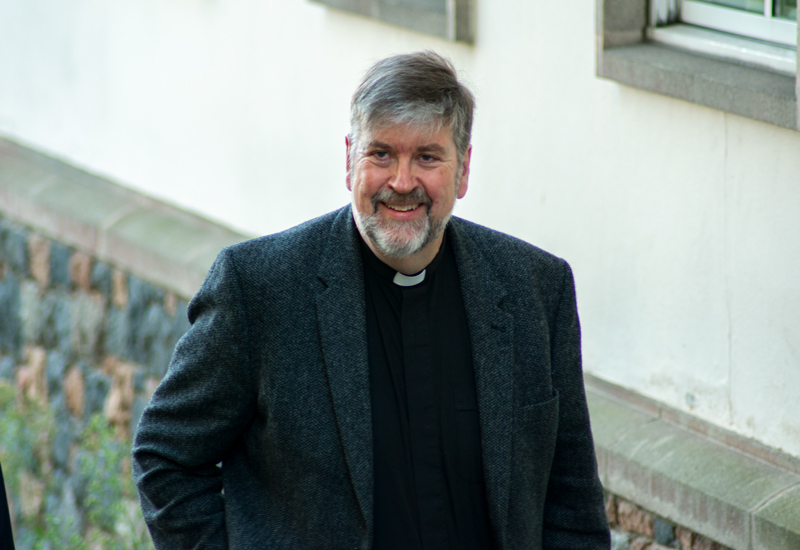


The States and the Dean of Guernsey have finalised a three-year agreement for the Church of England to continue to oversee the administration of probate through the centuries-old Ecclesiastical Court.
The agreement was negotiated by the Policy & Resources Committee. It completes the States' reversal of the previous Assembly's direction to take probate away from the Church and the Ecclesiastical Court and transfer it to the Royal Court.
The President of the Committee, Deputy Peter Ferbrache, called that previous decision "a vanity project".
The Committee does not intend to publish the agreement with the Dean, the Very Reverend Tim Barker.
In reply to questions to the Committee from Deputy Gavin St. Pier, Deputy Ferbrache said that not publishing the new contract "is consistent with standard practice". But Deputy St. Pier, who led the proposals which have now been reversed to take probate away from the Ecclesiastical Court, said that "reference to standard practice in this context is complete garbage as [there is] no commercial confidentiality".

Pictured: Deputy Gavin St. Pier (left) led proposals through the States to transfer probate services from the Ecclesiastical Court to the Royal Court when he was President of the Policy & Resources Committee. But under his successor, Deputy Peter Ferbrache (right), always a critic of those proposals, the Committee obtained States' support not to go ahead with the changes and has now concluded a new three-year deal with the Dean of Guernsey.
The Committee has set out what it called "the main elements of the agreement".
They include the Ecclesiastical Court retaining a management charge of £25,000 a year on top of the Court's administration costs, which have fluctuated around the £300,000 mark in recent years. The management charge is fixed for three years. Any surpluses from probate activities will be paid to the Social Investment Fund, a secular body which uses public and private funds to support charities and other third sector groups.
In June, the Committee said that it expected to conclude the agreement with the Dean by the end of that month. It was actually signed on Monday of last week. Deputy St. Pier, who submitted his written questions to the Committee on 25 November, said he suspected that his questions had "catalysed sign-off originally scheduled for June".
Deputy Ferbrache said that the delay in finalising the agreement was down to "a few technical details" but that they had not prevented the Social Investment Fund from benefitting from probate surpluses this year.
"In the meantime, the Dean has made an interim payment to the Social Investment Fund in respect of the 2021 surplus of £350,000 and is expecting to pay a further £250,000 before the end of the year," said Deputy Ferbrache.

Pictured: The agreement reached for probate to remain with the Ecclesiastical Court is thought to be very close to a proposal put forward late last year by the Dean of Guernsey, the Very Reverend Tim Barker.
When submitting its proposals for reform, the previous Policy & Resources Committee said: "It is an appropriate time to reform these arrangements by transferring the probate jurisdiction to the Royal Court and thereby removing the close links to the Church of England.
"While the service and operation are considered to be of high quality and efficient, it is no longer considered appropriate that probate is administered under these arrangements. The proposals to transfer the jurisdiction and function will ensure the same governance and standards as for similar public legal services operating as a government-led service."
The Committee said its reforms would not increase costs and may in time create opportunities to reduce costs.
The States voted in favour by 21 votes to 17 four months before the end of their extended term.
At the time, Deputy Ferbrache was one of the leading critics of those proposals. He said: "It is not going to achieve any purpose except put the charge up. We have something that works efficiently and [the States] want to change it."
Then, in February 2021, four months after the general election and Deputy Ferbrache's election as President of the Policy & Resources Committee, the Committee published proposals to reverse the previous States' decision.
The Committee said: "In late 2020, an alternative approach for the ongoing management of the probate function was put forward by the Dean of Guernsey, who proposed that probate services continue to be delivered by the Ecclesiastical Court, and not transferred to the Royal Court, with the net surplus (after the payment of all costs and a management fee) being transferred to the Social Investment Fund.
"The Committee agreed with the approach and directed officers to progress the Dean’s proposal. The proposals will achieve similar outcomes with regards directing surplus funds to the Social Investment Fund without additional legislation, increasing the operational cost base of the States of Guernsey or incurring the cost of transformation."

Pictured: Earlier this year, Deputy Adrian Gabriel seconded an amendment which proposed sticking with the earlier decision.
Deputies St. Pier and Adrian Gabriel led an amendment to prevent the States from reversing the decision to transfer probate to the Royal Court but their amendment was defeated by 15 votes to 22 and the States went on to approve maintaining the Ecclesiastical Court in its historic form.
Similar courts once existed in other jurisdictions influenced by Norman Law. They disappeared in France with the Revolution of 1789. In England, though they still exist, their probate functions were incorporated into the civil court system in the 1850s. The same happened in Jersey around 60 years ago.
Comments
Comments on this story express the views of the commentator only, not Bailiwick Publishing. We are unable to guarantee the accuracy of any of those comments.